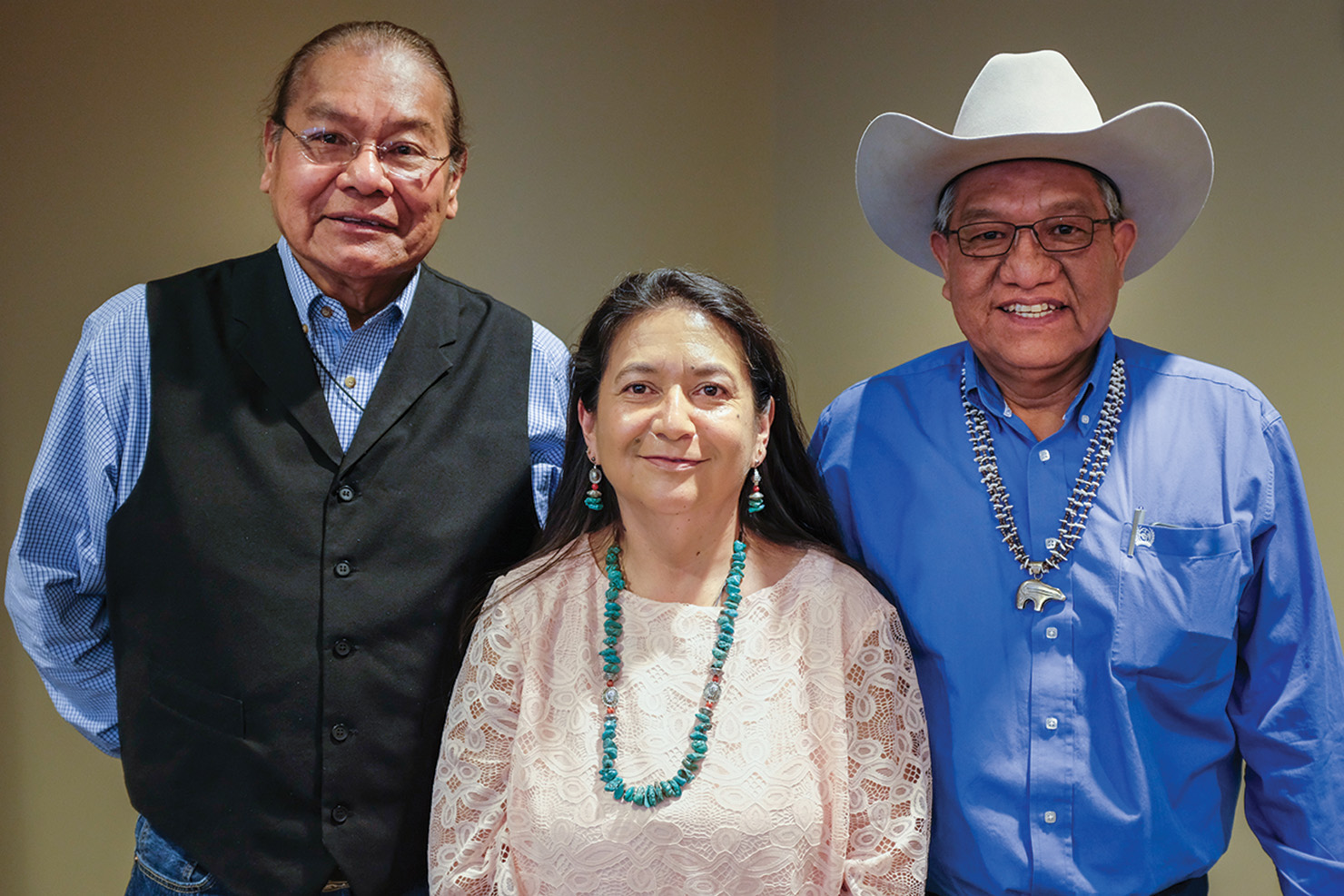One of the first topics of discussion to cross the table during the Tri-Ute meeting was the renaming of Gore Range in Summit County, Colo. The proposal was brought forth by Summit County Commissioner Karn Stiegelmeier, who argued that the name predates the USGS and does not meet the criteria currently used for naming mountains and ranges. Names are now selected based on a set of criteria that involve cultural aspects, and historical basis. As history has it, many of these landmarks are named after those who held power or recognition at the time, but bare little relevance to the geography itself or the history of the region. The names often serve as a grim reminder of the oppressive nature in which colonialism tried to claimed the west as their own.
“I think most important is to get consensus from the tribes as to what the name should be,” Stiegelmeier said. “Ideally it would be a name that would be agreed upon by each of the Ute tribes.” We need to petition with a suggested name, she explained. “The best way would be to have letters, or formal resolutions from the Ute tribes, local government offices, and NGO’s.
The Colorado Commission of Indian Affairs has been acting as liaison between Summit County and the Ute Tribes.
“This issue for Colorado is not going to go away,” said Ernest House Jr., Colorado Commission of Indian Affairs Director. He referenced another recent example — the renaming of Squaw Mountain, located in the Arapaho National Forest, which has also caught the attention of the Commission.
Stiegelmeier cited Friends of Eagle Nest Wilderness as an all-volunteer organization who has also been active in the support of renaming the Gore Range. The process to officially change the name will require a petition to the Colorado USGS Board, who would then recommend the name change to the Federal USGS. Summit County officials hope to announce their progress regarding the name change in October of this year.
“I’m very honored to sit at the same table as you,” Uinta & Ouray Ute Tribal Chairman Luke Duncan said. He was speaking to the leadership who had convened from all three Ute Tribes. “We have the same issues, we’re going to strive to do what we can.”
The Ute tribe is currently going into a court battle over the Bears Ears National Monument, and the recent decision by federal government to scale it back and reduce protection of antiquities and cultural sites under the Trump administration.
Terry Knight, Sr., Tribal Historic Preservation Officer for the Ute Mountain Ute Tribe emphasized the importance of the Bears Ears to the Utes. “We’re all Nuche, and we’ve been there,” he said, referring to some of the well-preserved rock art depicting Utes on horseback. “This kinda proves what the elders were saying, that the Utes were also there — in Bears Ears.” Knight also cited the presence of other Ute sites such as, wickiups, teepee rings and a cradle board set in sandstone.
The Southern Ute Indian Tribe received a warm welcome directed to their newly elected members, Chairman Christine Sage and Councilman Cedric Chavez, who were joined by Councilman Adam Red and Councilwoman Lorelei Cloud in Denver.
Chairman Sage explained the Tribal Council is in the process of revising their codes, along with the Tribe’s strategic plan. “My vision for my tribe is communication,” Sage said. “We are making our Tribal Campus and our community safe. We need to think of our students.” Community safety, and school safety proved to be a principal topic for both the CCIA and Tri-Ute Leaders in Denver last week.
Southern Ute leadership also emphasized accountability. “Transparency with government to our people,” Cloud said. The Southern Ute Tribal Council is proposing a process going forward, where individuals on Tribal Council sign their names to certain initiatives — taking on the role of seeing those initiatives to completion. “This would help us succeed as a Tribe, and create accountability,” Councilman Red stated.
The quarterly Tri-Ute meeting was held at History Colorado in downtown Denver on Friday, March 23.

